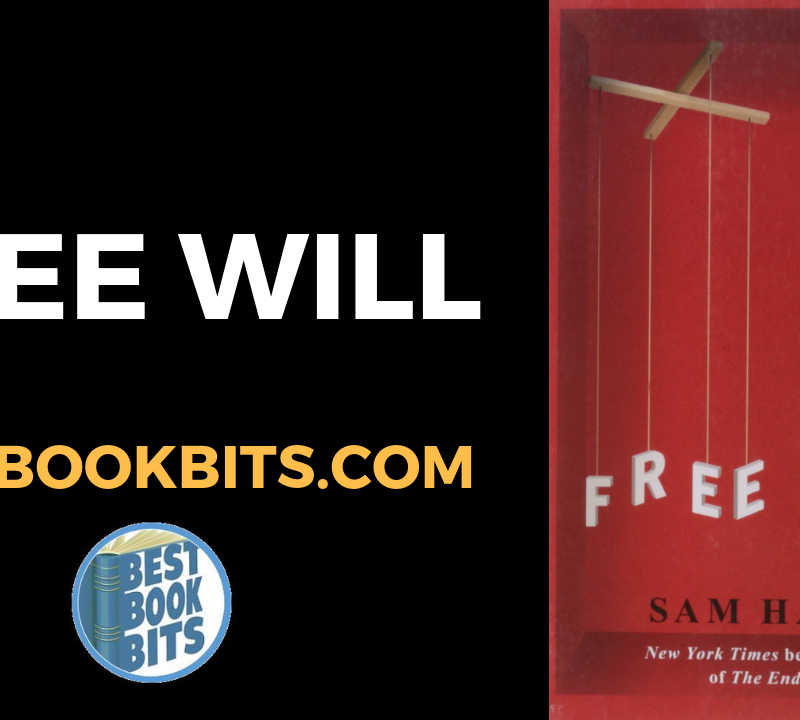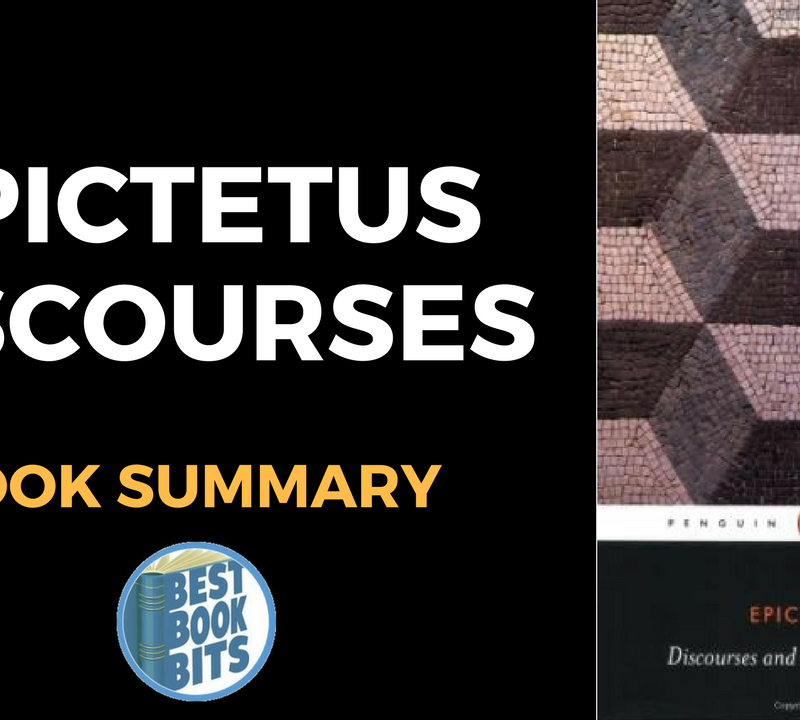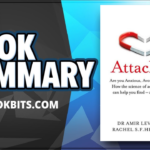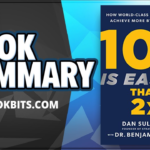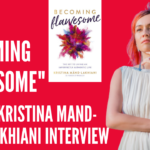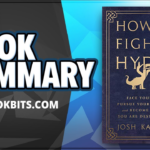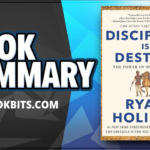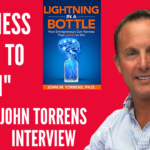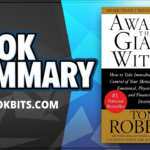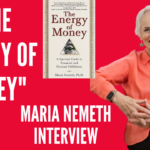★DOWNLOAD THIS FREE PDF SUMMARY HERE
? MY FREE BOOK TO LIVING YOUR DREAM LIFE”
? SPONSOR BESTBOOKBITS BY USING PATREON
? SUPPORT BESTBOOKBITS BY CLICKING THE LINKS BELOW
- 150 PDF Summaries
- Coaching Program
- Subscribe to My Channel
- Website
- Spotify
- Book Club
- Mailing List
The Book in Three Sentences
- Stoicism is a ‘tool’ for living a good life.
- The Stoics asserted virtue (self-control, courage, justice, and wisdom) is happiness.
- It is our perception of things that cause most of our trouble.
The Five Big Ideas
- Stoicism is founded on three critical disciplines: (1) the discipline of perception, (2) the discipline of action, and (3) the discipline of will.
- “The single most important practice in Stoic philosophy is differentiating between what we can change and what we can’t.”
- The Seven Clear Functions of The Mind: (1) Choice (2) Refusal (3) Yearning (4) Repulsion (5) Preparation (6) Purpose (7) Assent
- Before making a decision, stay poised and remember the purpose and principles you value most.
- The Four Habits of The Stoic Mind: (1) accept only what is true (2) work for the common good (3) match our needs and wants with what is in our control (4) embrace what nature has in store for us.
The Daily Stoic Summary
The Stoics framed their work around a series of exercises in three critical disciplines:
- The Discipline of Perception.How we see and perceive the world around us
- The Discipline of Action.The decisions and actions we take—and to what end
- The Discipline of Will.How we deal with the things we cannot change, attain clear and convincing judgment, and come to a true understanding of our place in the world
- “The Stoics were pioneers of the morning and nightly rituals: preparation in the morning, reflection in the evening.”
- “The single most important practice in Stoic philosophy is differentiating between what we can change and what we can’t.”
- “Education—reading and meditating on the wisdom of great minds—is not to be done for its own sake. It has a purpose.”
- “Knowledge—self-knowledge in particular—is freedom.”
- “One of the hardest things to do in life is to say ‘No.’”
- “The more you say no to the things that don’t matter, the more you can say yes to the things that do.”
- “The following little reminder sums up the three most essential parts of Stoic philosophy worth carrying with you every day, into every decision: Control your perceptions. Direct your actions properly. Willingly accept what’s outside your control.”
- “Having an end in mind is no guarantee that you’ll reach it—no Stoic would tolerate that assumption—but not having an end in mind is a guarantee you won’t.”
- “Have you taken the time to get clarity about who you are and what you stand for?”
Seven Clear Functions of The Mind:
- Choice—to do and think right
- Refusal—of temptation
- Yearning—to be better
- Repulsion—of negativity, of bad influences, of what isn’t true
- Preparation—for what lies ahead or whatever may happen
- Purpose—our guiding principle and highest priority
- Assent—to be free of deception about what’s inside and outside our control (and be ready to accept the latter)
★DOWNLOAD THIS FREE PDF SUMMARY HERE
? MY FREE BOOK TO LIVING YOUR DREAM LIFE”
? SPONSOR BESTBOOKBITS BY USING PATREON
? SUPPORT BESTBOOKBITS BY CLICKING THE LINKS BELOW
- 150 PDF Summaries
- Coaching Program
- Subscribe to My Channel
- Website
- Spotify
- Book Club
- Mailing List
- “You must reclaim the ability to abstain because within it is your clarity and self-control.”
- “You don’t control the situation, but you control what you think about it.”
- “All we have is our own mind.”
- “If you want to be steady, if you want clarity, proper judgment is the best way.”
- “Serenity and stability are results of your choices and judgment, not your environment.”
- “This morning, remind yourself of what is in your control and what’s not in your control. Before lunch, remind yourself that the only thing you truly possess is your ability to make choices (and to use reason and judgment when doing so). In the afternoon, remind yourself that aside from the choices you make, your fate is not entirely up to you. In the evening, remind yourself again how much is outside of your control and where your choices begin and end. As you lie in bed, remember that sleep is a form of surrender and trust and how easily it comes.”
- “A wise person knows what’s inside their circle of control and what is outside of it.”
- “According to the Stoics, the circle of control contains just one thing: YOUR MIND.”
- “Philosophy is simply asking us to pay careful attention and to strive to be more than a pawn.”
- “Find what you do out of rote memory or routine. Ask yourself: Is this really the best way to do it? Know why you do what you do—do it for the right reasons.”
- “There is clarity (and joy) in seeing what others can’t see, in finding grace and harmony in places others overlook.”
- “Whoever we are, wherever we are—what matters is our choices. What are they? How will we evaluate them? How will we make the most of them? Those are the questions life asks us, regardless of our station.”
- “What happened yesterday—what happened five minutes ago—is the past. We can reignite and restart whenever we like.”
- Ask yourself, “What bad habit did I curb today? How am I better? Were my actions just? How can I improve?”
- “The more things we desire and the more we have to do to earn or attain those achievements, the less we actually enjoy our lives—and the less free we are.”
- “Try to remember that when you find yourself getting mad. Anger is not impressive or tough—it’s a mistake. It’s weakness. Depending on what you’re doing, it might even be a trap that someone laid for you.”
- “Today, when you find yourself getting anxious, ask yourself: Why are my insides twisted into knots? Am I in control here or is my anxiety? And most important: Is my anxiety doing me any good?”
- “The next time you are afraid of some supposedly disastrous outcome, remember that if you don’t control your impulses, if you lose your self-control, you may be the very source of the disaster you so fear.”
- “The next time you find yourself in the middle of a freakout, or moaning and groaning with flu-like symptoms, or crying tears of regret, just ask: Is this actually making me feel better? Is this actually relieving any of the symptoms I wish were gone?”
- “Practice the ability of having absolutely no thoughts about something—act as if you had no idea it ever occurred. Or that you’ve never heard of it before. Let it become irrelevant or nonexistent to you. It’ll be a lot less powerful this way.”
- “Locate that yearning for more, better, someday and see it for what it is: the enemy of your contentment.”
- “Ask yourself: Is [my vice] really worth it? Is it really that pleasurable? Consider that when you crave something or contemplate indulging in a ‘harmless’ vice.”
- “What we desire makes us vulnerable.”
- “Whether it’s an opportunity to travel the world or to be the president or for five minutes of peace and quiet, when we pine for something, when we hope against hope, we set ourselves up for disappointment. Because fate can always intervene and then we’ll likely lose our self-control in response.”
- “When it comes to your goals and the things you strive for, ask yourself: Am I in control of them or they in control of me?”
- “It’s easy to act—to just dive in. It’s harder to stop, to pause, to think: No, I’m not sure I need to do that yet. I’m not sure I am ready.”
- “We should enjoy this brief time we have on earth—not be enslaved to emotions that make us miserable and dissatisfied.”
- “Focus. Prioritize. Train your mind to ask: Do I need this thing? What will happen if I do not get it? Can I make do without it? The answers to these questions will help you relax, help you cut out all the needless things that make you busy—too busy to be balanced or happy.”
- “One becomes a philosopher when they begin to exercise their guiding reason and start to question the emotions and beliefs and even language that others take for granted.”
- “Don’t fear self-assessment because you’re worried you might have to admit some things about yourself.”
- “We underestimate our capabilities just as much and just as dangerously as we overestimate other abilities.”
- “Cultivate the ability to judge yourself accurately and honestly. Look inward to discern what you’re capable of and what it will take to unlock that potential.”
- “As you walk past your possessions today, ask yourself: Do I need this? Is it superfluous? What’s this actually worth? What is it costing me?”
- “Ego and self-deception are the enemies of the things we wish to have because we delude ourselves into believing that we already possess them.”
- “When we experience success, we must make sure that it doesn’t change us—that we continue to maintain our character despite the temptation not to.”
- “We lose very little by taking a beat to consider our own thoughts. Is this really so bad? What do I really know about this person? Why do I have such strong feelings here? Is anxiety really adding much to the situation? What’s so special about __________?”
- On fighting biases and preconceptions: “Ask yourself: “What haven’t I considered? Why is this thing the way it is? Am I part of the problem here or the solution? Could I be wrong here? Be doubly careful to honor what you do not know, and then set that against the knowledge you actually have.”
- “Your attention is one of your most critical resources. Don’t squander it!”
- “To be rational today, we have to do just three things: First, we must look inward. Next, we must examine ourselves critically. Finally, we must make our own decisions—uninhibited by biases or popular notions.”
- “When someone points out a legitimate flaw in your belief or in your actions, they’re not criticizing you. They’re presenting a better alternative.”
- “When you catch an elbow or an unfair blow today, shake off the pain and remind yourself: I’m learning. My sparring partner is learning too. This is practice for both of us—that’s all. I know a bit more about him or her, and from my reaction, they’re going to learn a little bit more about me too.”
- “When someone asks you what you did yesterday, do you really want the answer to be ‘nothing’?”
- “How you handle today is how you’ll handle every day. How you handle this minute is how you’ll handle every minute.”
- “What if, when it came to your reading and learning, you prioritized quality over quantity? What if you read the few great books deeply instead of briefly skimming all the new books?”
- “Today, not tomorrow, is the day that we can start to be good.”
- “Don’t spend much time thinking about what other people think. Think about what you think. Think instead about the results, about the impact, about whether it is the right thing to do.”
- “Choose the right way, and watch as all these little things add up toward transformation.”
The First Two Things Before Acting:
- “First, don’t get upset—because that will color your decision negatively and make it harder than it needs to be. Second, remember the purpose and principles you value most. Running potential actions through this filter will eliminate the bad choices and highlight the right ones.”
- “Evaluate what you are doing, why you are doing it, and where accomplishing it will take you. If you don’t have a good answer, then stop.”
- “Today, give yourself the most simple and doable of tasks: just don’t make stuff worse.”
- “Whatever happens, don’t add angry or negative emotions to the equation. Don’t react for the sake of reacting. Leave it as it is. Stop digging. Then plan your way out.”
- “You can ask anyone for help. You don’t have to face everything on your own.”
- “The next time you face a political dispute or a personal disagreement, ask yourself: Is there any reason to fight about this? Is arguing going to help solve anything?”
- “How you handle even minor adversity might seem like nothing, but, in fact, it reveals everything.”
- “Every impediment can advance action in some form or another.”
- “Today, don’t try to impose your will on the world. Instead see yourself as fortunate to receive and respond to the will in the world.”
- Stoic joy is joy that comes from purpose, excellence, and duty.
- “No matter what happens today, no matter where you find yourself, shift to what lies within your reasoned choices.”
- “Silence is a way to build strength and self-sufficiency.”
- “Our pursuits should be aimed at progress, however little that it’s possible for us to make.”
- “Even one minute without playing the blame game is progress in the art of living.”
- “If you give things more time and energy than they deserve, they’re no longer lesser things. You’ve made them important by the life you’ve spent on them.”
- “There is no rule that says financial success must mean that you live beyond your means.”
- “If you start something and right away feel yourself getting lazy and irritated, first ask yourself: Why am I doing this? If it really is a necessity, ask yourself: What’s behind my reluctance? Fear? Spite? Fatigue?”
- “Your hidden power is your ability to use reason and make choices, however limited or small.”
- “The Stoic does two things when encountering hatred or ill opinion in others. They ask: Is this opinion inside my control? If there is a chance for influence or change, they take it. But if there isn’t, they accept this person as they are (and never hate a hater).”
- “The next time you make a donation to charity, don’t just think about the good turn you’re doing, but take a moment to consider that one day you may need to receive charity yourself.”
- “Make yourself invulnerable to your dependency on comfort and convenience, or one day your vulnerability might bring you to your knees.”
- “When we become successful, we forget how strong we used to be.”
- “Remember today that you’d be OK if things suddenly went wrong.”
- “No matter what’s happening to your body, no matter what the outside world inflicts on you, your mind can remain philosophical.”
- “Self-awareness and wrongdoing rarely go together.”
- “We go through our days responding and reacting, but it’s rare to really pause and ask: Is this thing I’m about to do consistent with what I believe? Or, better: Is this the kind of thing the person I would like to be should do?”
- “When a bad habit reveals itself, counteract it with a commitment to a contrary virtue.”
- “Goodness isn’t something that’s going to be delivered by mail. You have to dig it up inside your own soul. You find it within your own thoughts, and you make it with your own actions.”
- On saying no to distractions: “Ask yourself: What is it that only I can do?”
- “What is the best use of my limited time on this planet? Try to do the right thing when the situation calls for it. Treat other people the way you would hope to be treated. And understand that every small choice and tiny matter is an opportunity to practice these larger principles.”
- “When you seek to advance your own position in life, character is the best lever—perhaps not in the short term, but certainly over the long term.”
- “Instead of simply accepting what happens, [the Stoics] urge us to actually enjoy what has happened—whatever it is. Nietzsche, many centuries later, coined the perfect expression to capture this idea: amor fati (a love of fate). It’s not just accepting, it’s loving everything that happens.”
- “No matter how much preparation, no matter how skilled or smart we are, the ultimate outcome is in the lap of the gods.”
- “Acceptance isn’t passive. It’s the first step in an active process toward self-improvement.”
- “To resent change is to wrongly assume that you have a choice in the matter.”
The Four Habits of The Stoic Mind:
- Accept only what is true
- Work for the common good
- Match our needs and wants with what is in our control
- Embrace what nature has in store for us
- “Pretend that each event—whether desired or unexpected—was willed to happen, willed specifically for you.”
- “Having [happiness] for a moment is the same as having it forever.”
★DOWNLOAD THIS FREE PDF SUMMARY HERE
? MY FREE BOOK TO LIVING YOUR DREAM LIFE”
? SPONSOR BESTBOOKBITS BY USING PATREON
? SUPPORT BESTBOOKBITS BY CLICKING THE LINKS BELOW
- 150 PDF Summaries
- Coaching Program
- Subscribe to My Channel
- Website
- Spotify
- Book Club
- Mailing List


